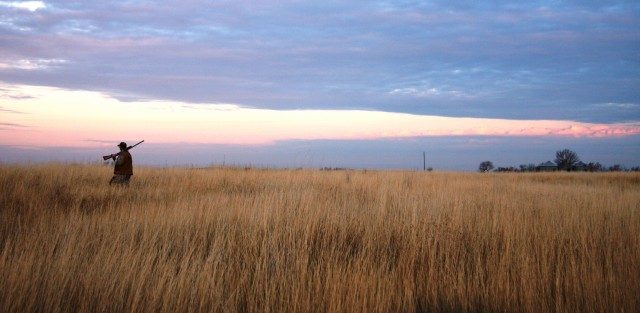The Outdoor Heritage Fund Is A Bad Idea

I have a column in today’s Grand Forks Herald (also published in the Ashley Tribune, the Barnes County Independent, the Bowman County Pioneer and the North Dakota Free Press) about the proposed Outdoor Heritage Fund which would divert a portion of the state’s oil tax revenues into a fund for conservation.
An excerpt:
Conservation is an area that not all agree upon. So, conservation programs and appropriations ought to come before the scrutiny of our elected lawmakers, not be pushed off onto a board of unelected appointees.
If the state needs conservation, we should have a debate about that through the legislative process. The creation of this board short-circuits that process and guarantees that tens of millions of dollars will be spent on conservation with little debate and whether the state needs it or not.
I’ve gotten no small amount of feedback on my opposition to this fund. Republican legislators support it. The Dalrymple administration supports it, with Lt. Governor Drew Wrigley being particularly outspoken in favor of it. There is a laundry list of interest groups in the state who back it including the Farm Bureau, Farmers Union, Stockman’s Association, Grain Growers Association, Lignite Energy Council, Petroleum Marketer’s Council, MDU Resources, Basin Electric, North American Coal, The Bismarck-Mandan Chamber, The North Dakota Chamber of Commerce, the ND Rural Electric Cooperatives, Ducks Unlimited, the North Dakota Soil Conservation Service, the North Dakota Conservation Trust, the North Dakota Soybean Growers and others.
But what’s motivating this push is less support for the idea itself, I think, but rather fear over what voters might be convinced to pass on the ballot in the next election. An iteration of this idea which would have been on the last statewide ballot were it not for petition fraud perpetrated by a group of NDSU football players would have been far worse, with no cap on funds, fewer restrictions on the use of those funds and little oversight by elected leaders.
Much of the support for the version of this idea before the legislature stems from a desire to head off a much worse idea on the ballot (which in and of itself might be an argument for some of the initiated measure reforms also being considered by the legislature). They want to do something not-as-bad before something worse gets pushed on the state.
Yet, that doesn’t change what a poorly thought out law this is. The long-term repercussions of enshrining conservation activism in state government are enormous. Issues like conservation should be debated by legislators, not given automatic appropriations.
This isn’t a question of whether we should do conservation in the state, or how we do it, but rather how we go about having that debate. If the Outdoor Heritage Fund is created, there won’t be a debate at all.







